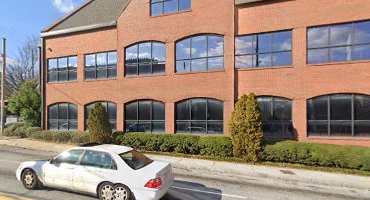July 25, 2025 | Atlanta, GA
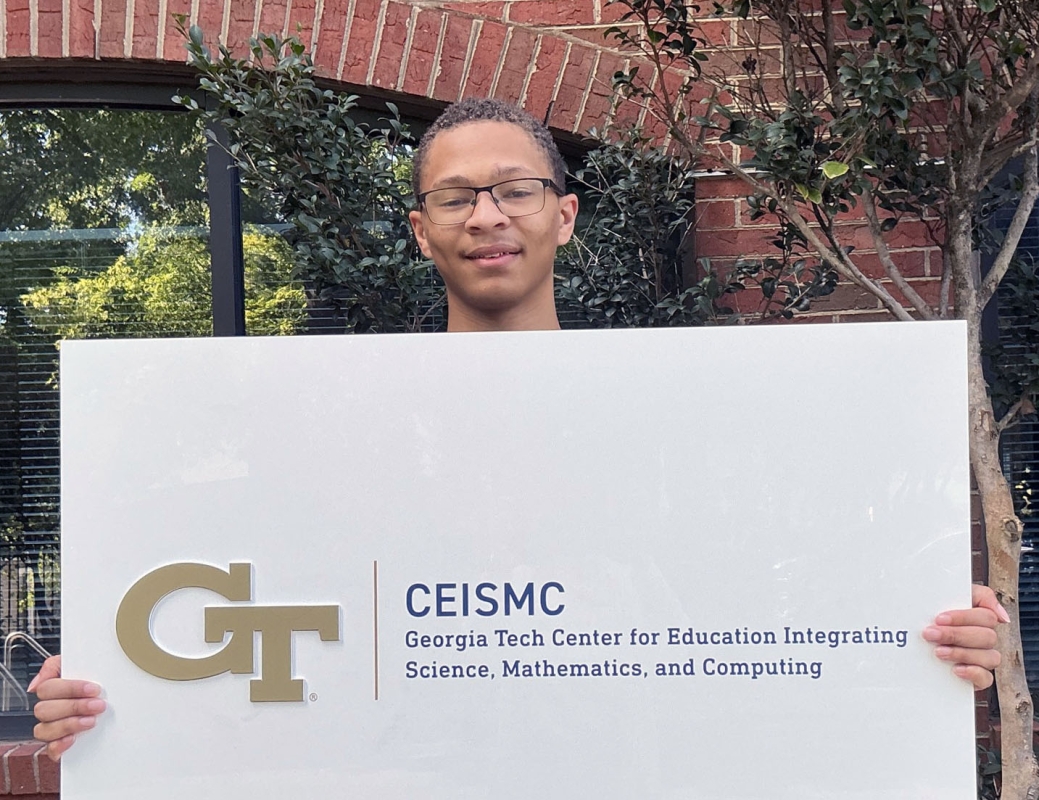 This past spring, Kennesaw Mountain High School senior Johnathan Cunningham completed his school’s magnet senior research and internship requirements by working with CEISMC’s Expanded Learning Programs. As part of his internship, Cunningham—who will be attending Georgia Tech as a mechanical engineering major in August—conducted a research project evaluating the effectiveness of a CEISMC Saturday program. He explored best practices for engaging K-12 students in STEM outside of the traditional classroom setting. Over the semester, he interviewed CEISMC staff, analyzed evaluation tools, and led a Saturday STEAM Workshop for middle school students. His work not only deepened his own learning but also supported CEISMC’s efforts to improve how these impactful programs are designed and evaluated. In an interview with CEISMC communications, Cunningham shared more about his experience, what he discovered, and what lies ahead as he prepares to continue working with Expanded Learning Programs as an undergraduate research assistant this fall.
This past spring, Kennesaw Mountain High School senior Johnathan Cunningham completed his school’s magnet senior research and internship requirements by working with CEISMC’s Expanded Learning Programs. As part of his internship, Cunningham—who will be attending Georgia Tech as a mechanical engineering major in August—conducted a research project evaluating the effectiveness of a CEISMC Saturday program. He explored best practices for engaging K-12 students in STEM outside of the traditional classroom setting. Over the semester, he interviewed CEISMC staff, analyzed evaluation tools, and led a Saturday STEAM Workshop for middle school students. His work not only deepened his own learning but also supported CEISMC’s efforts to improve how these impactful programs are designed and evaluated. In an interview with CEISMC communications, Cunningham shared more about his experience, what he discovered, and what lies ahead as he prepares to continue working with Expanded Learning Programs as an undergraduate research assistant this fall.
Q: What was your main goal for this internship, and how did your project evolve?
A: Originally, I wanted my research to focus on creating and teaching a class on EarSketch and then evaluating how effective it was in engaging students. But I realized I didn’t have a good way to measure this, so I shifted my research to adapting CEISMC’s Summer PEAKS evaluation surveys for the STEAM Workshops. I still went ahead and taught my EarSketch class, but my research became more about exploring how those surveys could be applied across other CEISMC programs. It ended up being a valuable learning experience in both teaching and research.
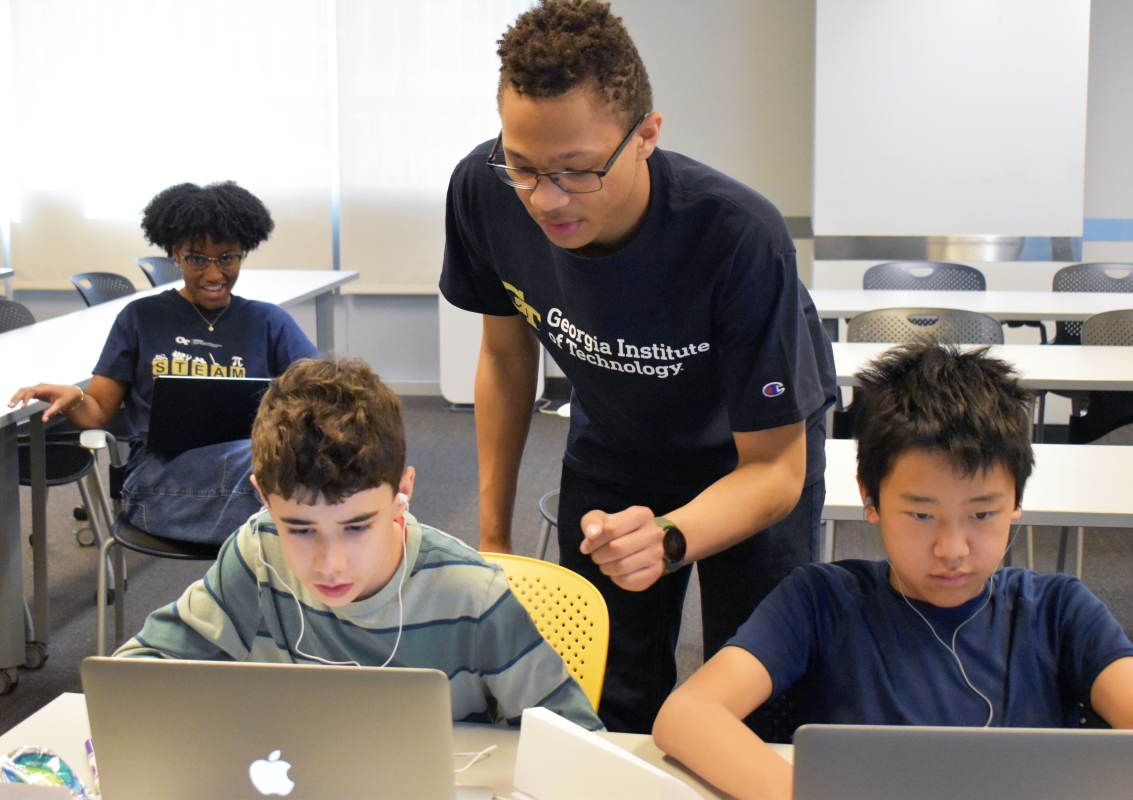 Q: What was it like teaching your STEAM Workshop?
Q: What was it like teaching your STEAM Workshop?
A: Honestly, it went better than I expected! I was nervous at first, and one technical issue took 20 minutes to fix, but I adapted and eventually figured it out. The students were engaged, and I also learned the importance of having backup plans; like when the kids didn’t want to do the dance activity I planned, and I had to improvise a different way to keep them invested.
Q: What surprised you the most during your internship?
A: Definitely how easily the students were able to pick up text-based programming in Python through EarSketch. I expected it to be a challenge since most of them hadn’t used it before, but they grasped it really quickly. One student even figured out how to change the tempo without any instruction and went on to create some music that sounded really cool. It was also surprising to see how invested all the students were in the lesson. I thought at least some of them wouldn’t be interested, but everybody was engaged and making music. When I listened to their work, I could tell they put in a lot of effort, which was really interesting to see.
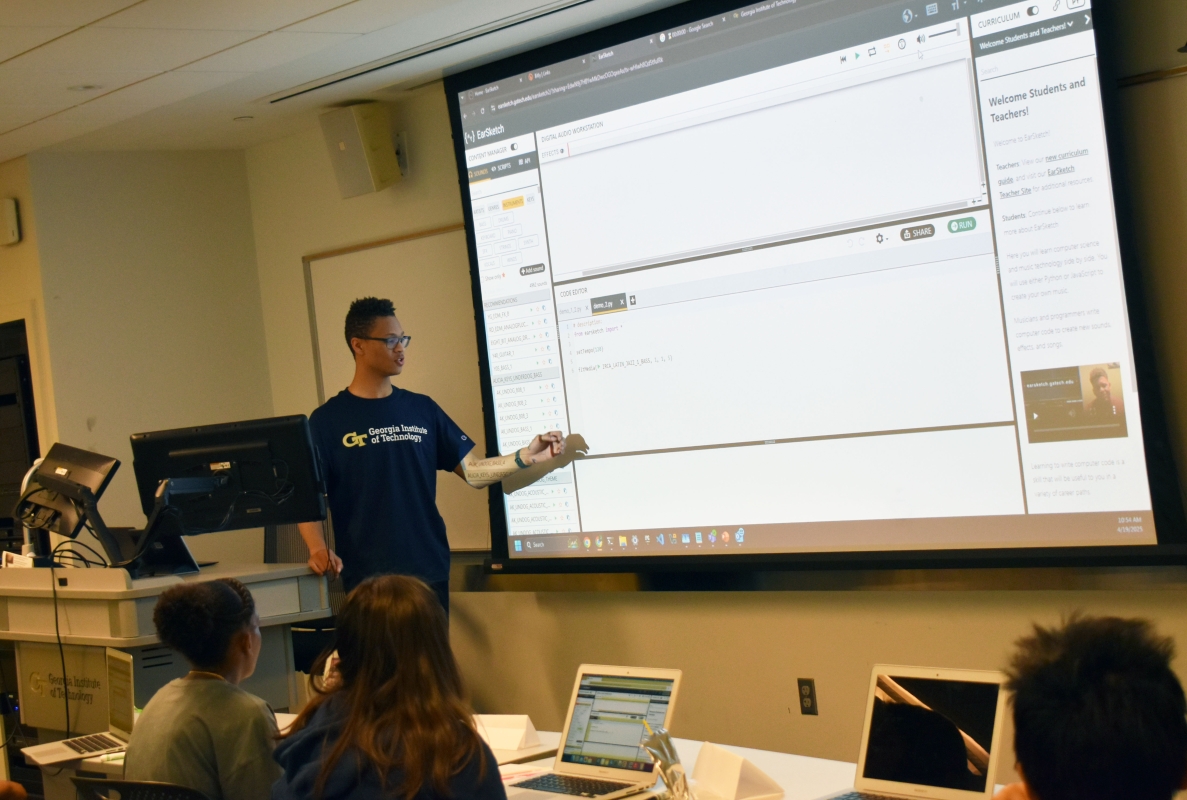 Q: What was your biggest triumph, and what did you ultimately take away from the experience?
Q: What was your biggest triumph, and what did you ultimately take away from the experience?
A: One of my biggest triumphs was successfully teaching the STEAM Workshop—especially since it was my first time leading a class like this. In the first session, the technical issue made me worried I wasn’t going to be able to teach the class. But I figured it out, made adjustments, and both the first and the second session ended up going really well. Hearing students say they wished they had even more time to keep working on their music made it feel like my efforts in engaging students had paid off. Another big moment was finishing and presenting my research project, especially after I initially struggled with defining my problem statement and navigating IRB [Institutional Review Board - human subjects research] approval. It was a bit stressful at first, but I learned how to stay organized and focused under pressure, and I ended up giving a presentation that I was proud of to a room full of people and confidently explained my research.
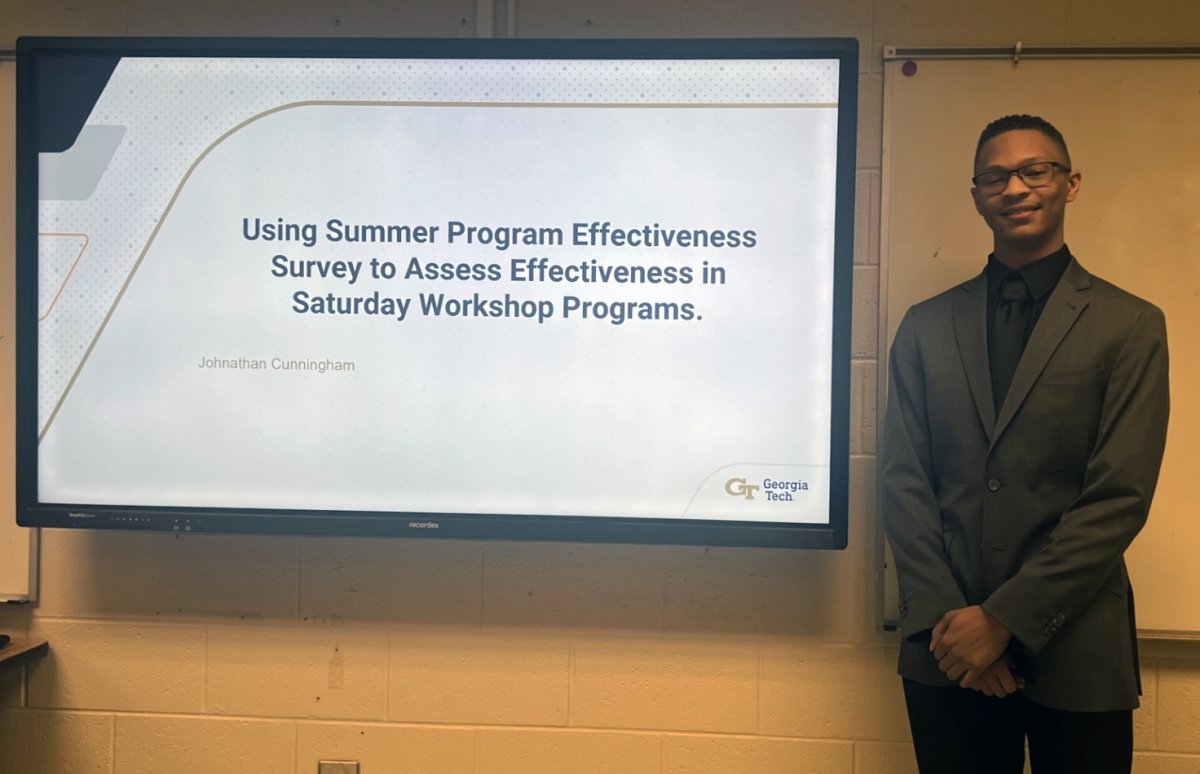 This experience taught me how valuable it is to be flexible and prepared, having a solid plan but also being ready to adapt when things don’t go as expected. I also learned how effective art can be in making STEM more engaging. I got to see students who had never coded before get completely absorbed in creating music with Python. This experience showed me that combining creativity with technology can open up STEM to a wider range of learners and in new ways, which is what STEAM is all about.
This experience taught me how valuable it is to be flexible and prepared, having a solid plan but also being ready to adapt when things don’t go as expected. I also learned how effective art can be in making STEM more engaging. I got to see students who had never coded before get completely absorbed in creating music with Python. This experience showed me that combining creativity with technology can open up STEM to a wider range of learners and in new ways, which is what STEAM is all about.
—Chloe Behan, CEISMC Communications

